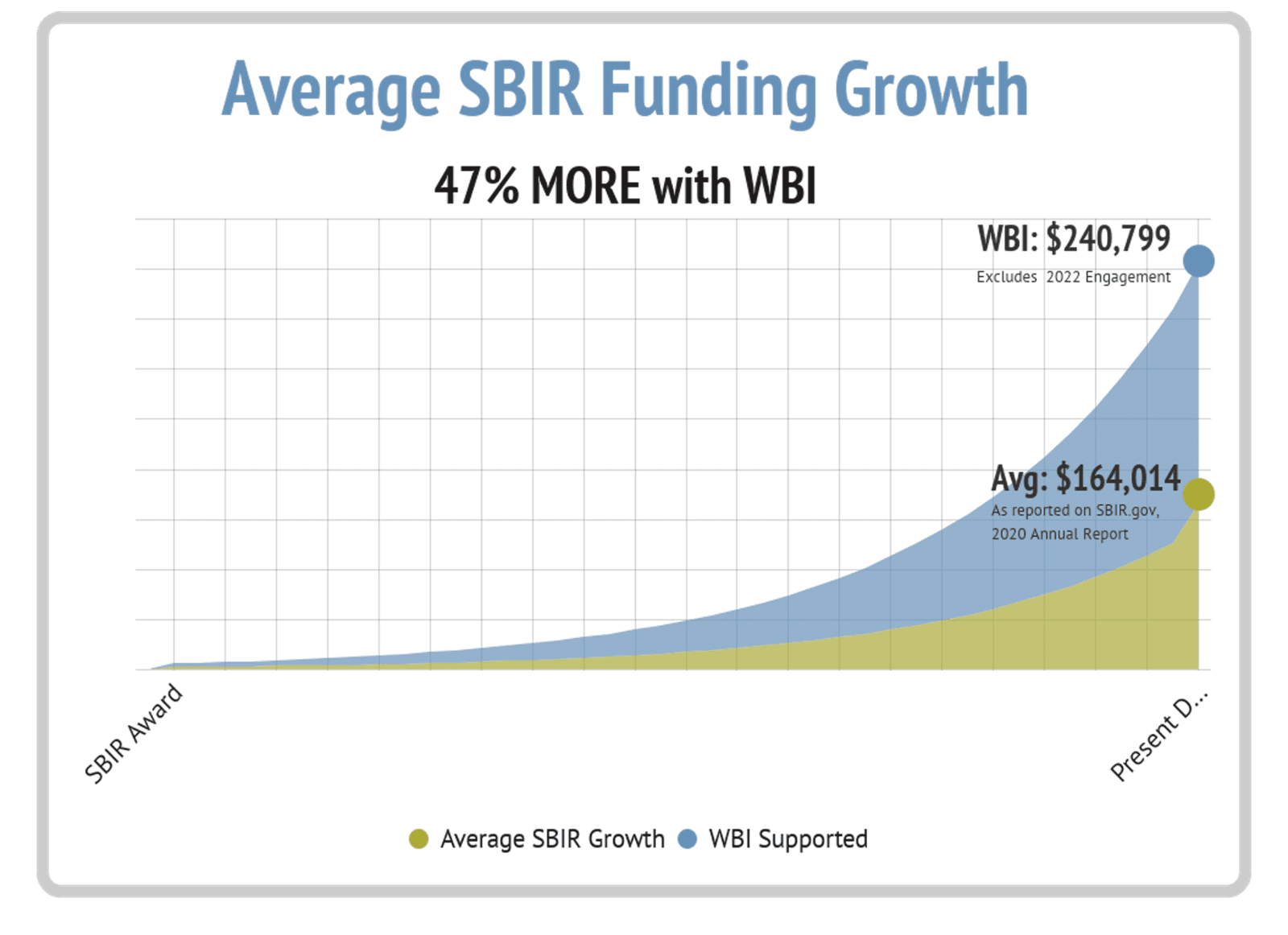The SBIR Ventures team at Wright Brothers Institute is busy making a difference to small businesses in a variety of ways, all ultimately relating to the bottom line.
The team acts as a bridge between small businesses and government, offering education, guidance and support every step of the way. For entrepreneurs, diving into the government contracting pool can be daunting: WBI’s SBIR Ventures team has a program that meets every business where it is, then setting the path to growth. They focus on three distinct phases: Technology Transfer - getting needed new technology out of the lab and into the hands of a manufacturer or developer; Technology Transition, - getting that technology into the hands of the warfighter; and Technology Commercialization - taking the technology beyond the government and out to the world at large.
WBI’s team is well-versed in the inner workings of the government’s small business efforts and works closely with their colleagues at the Air Force Research Laboratory, headquartered at Wright-Patterson Air Force Base with directorates in other parts of the country. They know what the Air Force is looking for and their ties to the small business community means they know who may be qualified to provide it.
Much of their work is co-developing SBIR technologies with AFRL-developed technologies, a process that accelerates innovation on the transition pipeline by converging two separate contributors onto the same path. Researchers often work in isolation, so when technology development agreements supported by WBI’s Industry Outreach Group bring together a collaboration, it moves tech development more quickly – a valuable outcome for both.
Several notable associations are becoming reality in part because of WBI’s involvement. The SBIR Ventures Group was able to introduce a SBIR awardee and SBIR TAP (Technology Acceleration Programs) alum (Tackle AI) to a sister Partnership Intermediary Agreement (PIA) research organization, Griffiss Institute from Rome, New York. WBI knew that Tackle AI has a publishing application programming interface (API) for document retention that would fit nicely with AFRL’s Information Directorate (AFRL/RI), headquartered in Rome. RI is the Directorate serviced by Griffiss, giving the PIA deep connections and specialized knowledge. WBI’s assistance brought the two together to discuss a potential Cooperative Research and Development Agreement (CRADA) and other potential partnership vehicles.. This potential partnership did not come to fruition this time, but valuable connections were made by both the government and small business. As the SBIR technology brokers, WBI is tasked with finding pathways or opportunities for SBIR awardees to aid the warfighter.
WBI is making introductions and connections with innovation institutes and Offices of Research and Technology Application (ORTAs) across the country. The team’s work opens the aperture of opportunities for small businesses both in and far beyond the Dayton region.
WBI showed its value again in June this year, when the AFRL Aerospace Systems Directorate’s (AFRL/RQ) ORTA was looking for potential collaborators in a variety of technology areas. Using WBI’s SCOUT process, SBIR companies that appeared able to fit RQ’s requirements were identified and issued invitations to pursue a collaboration. The same procedure was undertaken on behalf of the Materials & Manufacturing Directorate (AFRL/RX)’s ORTA. Again, the Directorate will evaluate the companies for collaboration possibilities.
One highly successful connection was made in the case of Legionarius, a New England-based performance garment provider whose work seems almost tailor-made for the warfighter. Read more about that WBI success story here:
https://www.wbi-innovates.com/blogs/post/legionarius
Throughout the third quarter of FY22, WBI’s SBIR Ventures also coordinated five Investor Pitch Workshop cohorts. Each cohort consisted of two panel sessions and a training session in between for SBIR awardees to develop their investor pitch. In these workshops, SBIR awardees would present their investor pitch and receive feedback from venture capitalists and angel investors on ways to improve their pitch to appeal to next-level investors. WBI provided an overview and open discussion training session for any small businesses interested in learning effective pitch layout and content.
The SBIR Ventures team is making parallel inroads with the investor community, sparking increased interest in SBIR businesses and what they have to offer. Networking and WBI-facilitated presentations have piqued investor interest, painting a positive picture of future possibilities.
Of the SBIR awardees able to complete both sessions, all but one saw an increase in investor pitching readiness. Fortune favors the prepared, and the support of WBI’s SBIR Venture team is where preparation meets practicality.
Sources:
https://www.nsin.mil/news/2022-05-09-opening-the-front-door/
https://www.businessnewsdaily.com/9078-angel-investor-funding-reasons.html

